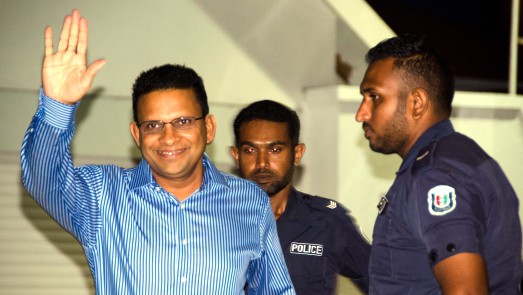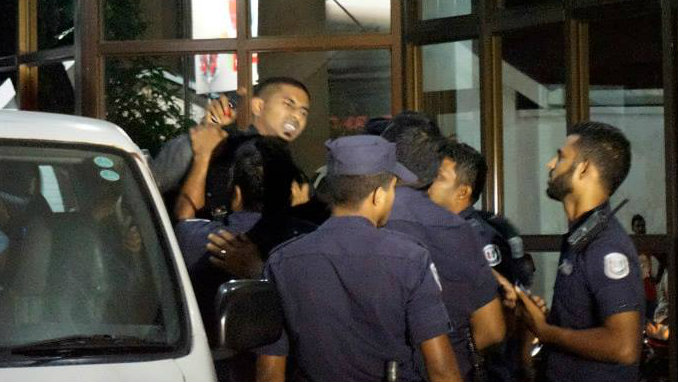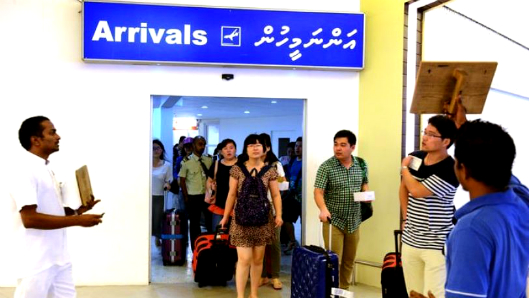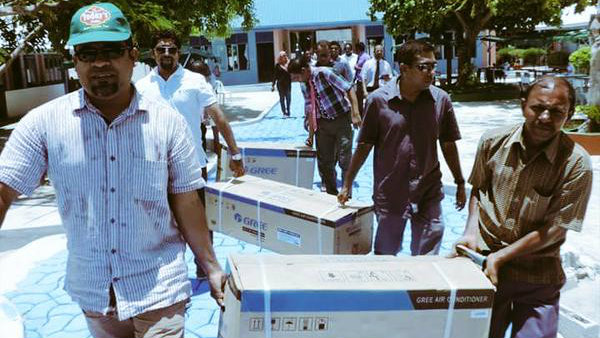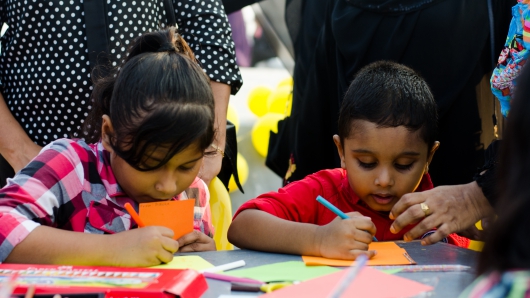The immigration department has denied accusations by the former high commissioner from Bangladesh that its officers are involved in fraud against low-paid migrant workers.
Selina Mohsin, former high commissioner to the Maldives, in an article for the Dhaka Tribune accused staff in the Maldivian immigration department of helping to to defraud migrants from Bangladesh by making false promises of well-paid jobs.
The Department of Immigration and Emigration denied Mohsin’s claims in a press statement yesterday.
The department said: “The institution gives approval to any worker who has been certified for employment abroad – within the limits of its quota and in adherence to its guidelines.”
It said that the department is not involved in selecting which overseas workers come to work in the Maldives, and therefore would not be in a position to commit such a fraud.
In her article published on Saturday, Mohsin, who served as high commissioner between 2008 and 2010, said that Bangladeshi workers pay as much as $2,500 to come to the Maldives but find on arrival that these promises are not fulfilled.
She said the workers are abandoned by the companies that sponsor their work permits and forced to find other work, which is often dangerous and badly paid.
“Questionable immigration officers and Bangladeshi brokers work in collusion to bring innocent people from Bangladesh. They are forced to work over 14 hours [per day] with little food and less security,” Mohsin wrote.
“On average, the writer found that one Bangladeshi worker died every week when she was high commissioner.”
Mohsin said that most Bangladeshis find themselves working in construction with no certainty of a salary, living in “inhuman, cramped quarters” without their passports and money.
Her article follows a series of attacks on expatriate workers in the Maldives.
A 25-year old Bangladeshi national, Shaheen Mia, was stabbed to death in a Malé café in March, and a day later another Bangladeshi national identified as Bilal was found dead on the island of Alif Alif atoll Thoddoo, naked with a piece of cloth tied around his neck. Further reports followed of stabbings targeting expatriate workers.
Transparency Maldives, an anti-corruption organisation, has called police to expedite their investigation into Mia’s murder.
Mohsin said that Maldivians “need to be better educated with appreciation of the contribution of expatriate labourers who keep their economy alive. Instead, innocent workers are stabbed and killed.
“Their families in Bangladesh are devastated with indelible tragedy — death of husbands, brothers, and sons.”
The Human Rights Commission of the Maldives has also repeatedly noted prejudice, discrimination, and violence faced by expatriates in the Maldives, calling on authorities to take action.
The current Bangladesh High Commissioner to the Maldives, Kazi Sarvar, on Tuesday met with immigration department heads and said the article was purely Mohsin’s own opinion, not the view of the Bangladeshi government, the department said.
Bangladesh and Maldives will meanwhile assemble a technical team to improve the immigration systems of both countries, the statement added.
Migrant workers had planned a protest following the murders last month, but the department of immigration warned them against participating in protests and threatened to cancel work visas if they did so.
The Bangladeshi High Commission in Malé also opened a 24-hour help line for Bangladeshi migrant workers in the Maldives.
There are over 50,000 expatriate workers in the Maldives, according to the 2014 national census.

